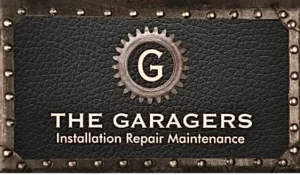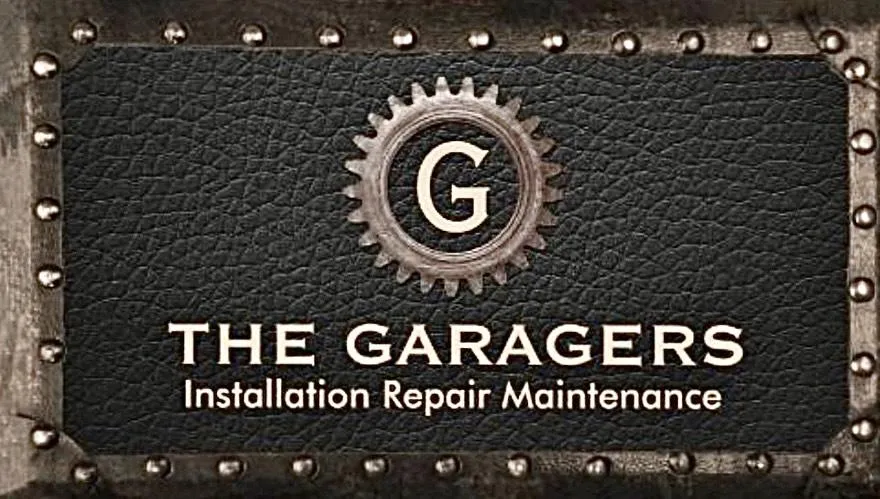Anything worth having is worth taking care of. An annual checkup gives your doctor a chance to evaluate your health and make suggestions to improve it. The situation is similar when it comes to the well-being of your garage door. Annual maintenance allows our expert technicians to ensure its smooth operation, take steps to extend its lifespan, and prevent surprise breakdowns that could endanger people and property.
A garage door that isn’t well maintained could develop various issues that cause it to get stuck or fall without warning, injuring a person or pet or causing serious damage to a vehicle. Springs, cables, and safety sensors can fail. Even forcing a stubborn door to open or close can lead to a serious accident. Personal injury lawyers at Cain Firm in Dallas/Fort Worth say they’ve seen clients with garage door injuries including broken arms, legs, ribs, or collarbones; deep cuts from a door’s sharp edges; painful bruises; nerve damage; and concussions.
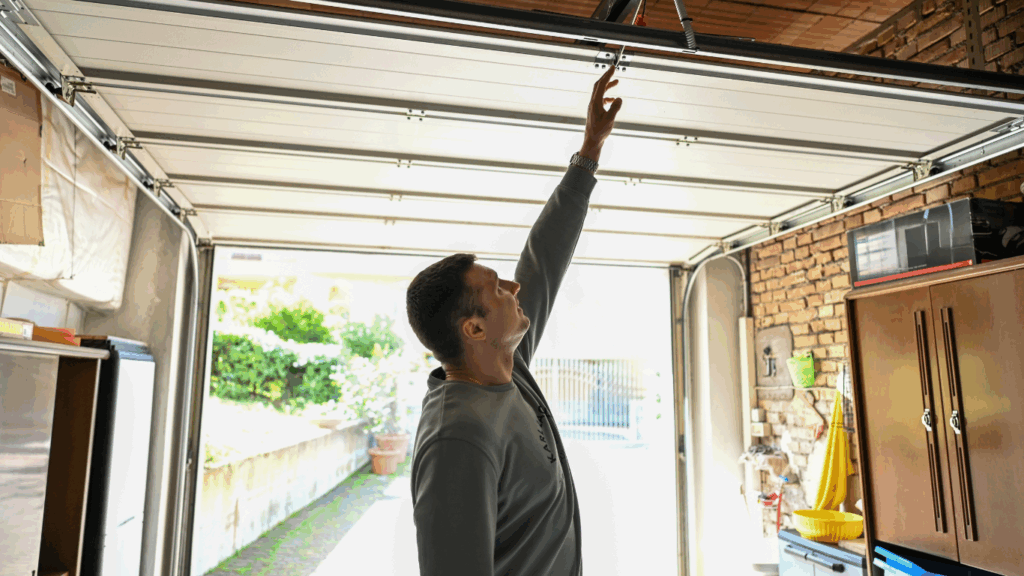
Safety, Security, and Property Value
At The Garagers, we want you to feel safe and secure in your home or commercial building, and this is another reason why we stress the importance of maintenance. Here’s an interesting statistic from a survey by the insurance comparison pros at The Zebra: 9% of burglars choose the garage door as the entry point for break-ins. This may not sound like much, but considering that police solve only 12% of burglaries, skipping garage repairs and maintenance isn’t a risk worth taking. Issues like misaligned tracks or faulty locks can develop and compromise security, making it easier for burglars to get in.
The advantages of a well-cared-for garage door go beyond safety and security. Since your garage door is a major focal point when people view your building, a flawless one that looks like new can boost the perceived value of the entire property. If you decide to sell your home, upgrading to a new garage door is a great idea. A garage door replacement returns a whopping 193.9% of the homeowner’s investment, according to the 2024 Cost Versus Value Study coordinated by Remodeling magazine. That makes it the home improvement with the highest ROI of 23 projects included in the study.
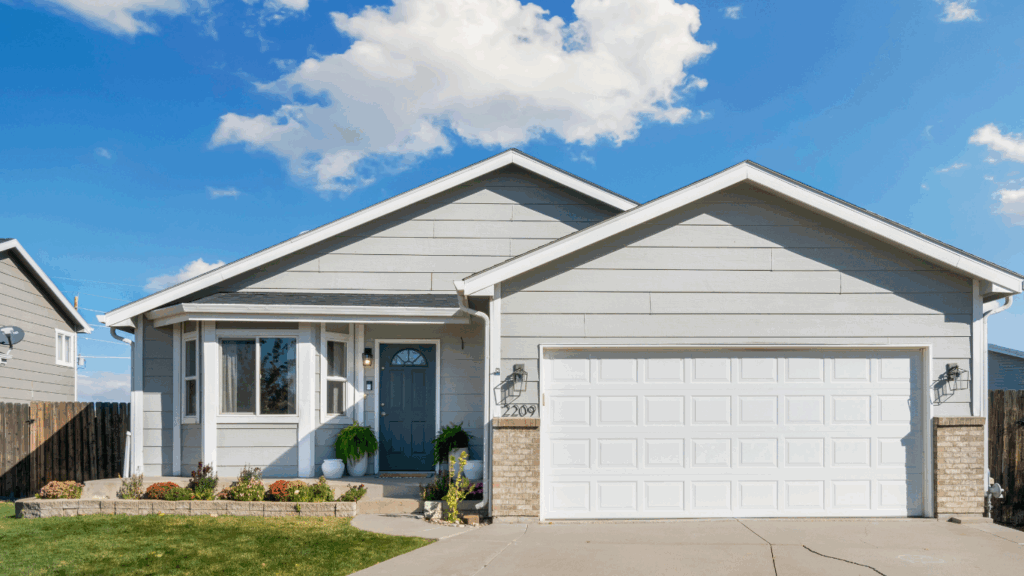
Along with scheduling preventive maintenance, it’s important to call us for repairs as soon as you notice a garage door issue, no matter how small. That way, we can keep it from turning into a big, costly problem. Here are the top 5 signs your garage door needs immediate repair:’
Sign #1: The door won’t open or close properly – When a garage door won’t open with a remote, the most likely reasons are that you’re out of range, there’s signal interference, or the remote’s batteries are dead, and you need to replace them. If none of these is the case, the door’s safety sensors could be misaligned or obstructed.
If you can close the door with the remote but not open it, you could have a wiring problem, a bad motor board, or an issue with the garage door opener settings or the remote itself. On the other hand, if you can use the remote to open the door but not close it, the culprit might be damaged rollers or tracks, broken or damaged springs, or worn or frayed cables. Another possibility is that the garage door limit settings or the door opener sensitivity settings need adjustment.
Sign #2: You hear strange noises when the door is operating – Garage doors can make enough weird sounds to outdo the spookiest haunted house:
- Squeaking
- Creaking
- Rattling
- Popping
- Banging
- Clinking
- Scraping
- Grinding
- Rumbling
- Squealing
- Vibrating
- Slapping
- Humming
Issues with broken, loose, or misaligned components are only a few of the possible causes. Who ya gonna call? Don’t bother with Ghostbusters – Garager That!!!
Sign #3: You spot sagging sections or misaligned tracks – Causes of a sagging garage door include uneven weight distribution, incorrect spring tension, loose hinges or tracks, moisture, age, and more. Misaligned tracks also have numerous possible causes. If your garage door is old, loose parts may have altered its alignment. Doors of any age that were improperly installed, lack lubrication, suffered an impact, or have a buildup of debris might have tracks that don’t align correctly. Even wear and tear can be to blame.
Sign #4: The door makes slow or jerky movements – Worn-out parts, a need for lubrication, misaligned tracks or debris obstructing them are some issues that can slow a garage door’s movements when opening or closing. Worn or damaged tracks or rollers, worn springs, loose hardware, or malfunctioning pulleys can cause a garage door to jerk when opening. Similar issues or trouble with the opener’s safety sensors can make a door jerky when closing.
Sign #5: There’s visible wear on cables, springs, or rollers – Hard-to-avoid factors like friction, corrosion, unusually high or low temperatures, moisture, and harsh weather can all result in wear and tear to these components. And as with most garage door problems, improper installation or neglected maintenance can also play a role. These worn parts can make it hard to open or close the door and cause it to move unevenly or even collapse. Wear and tear on some parts can strain others, leading to more wear and tear and possible hazards.
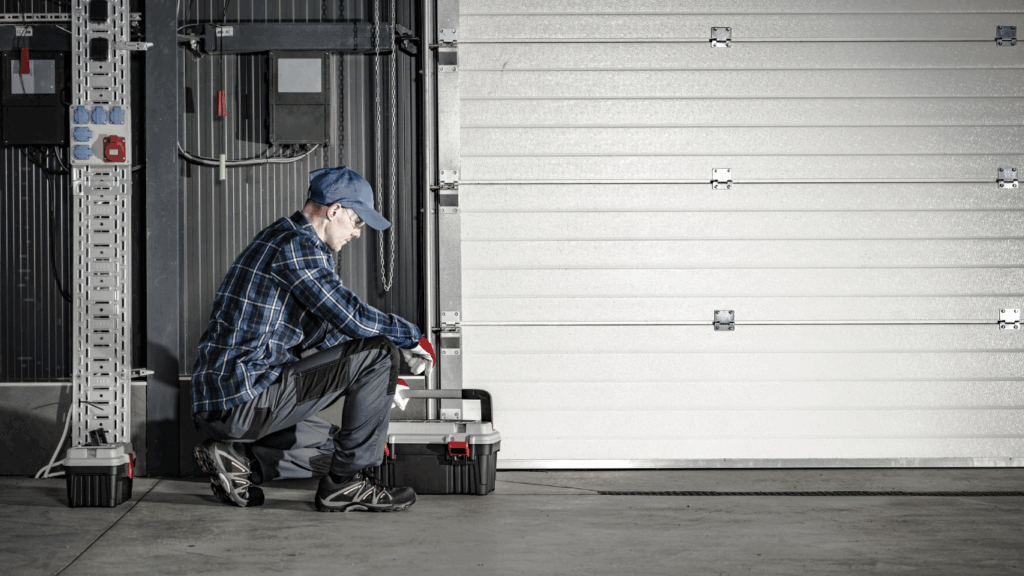
As you can see, when something goes wrong with your garage door, many possible causes involving various parts that affect each other’s performance need to be checked. It’s not a guessing game you’re likely to win, so leave the inspection and diagnosis to us. Call The Garagers now for a maintenance check or repair consultation. You’ll be glad you did! We back all our work with a comprehensive warranty because we’re dedicated to providing peace of mind, one door at a time.
